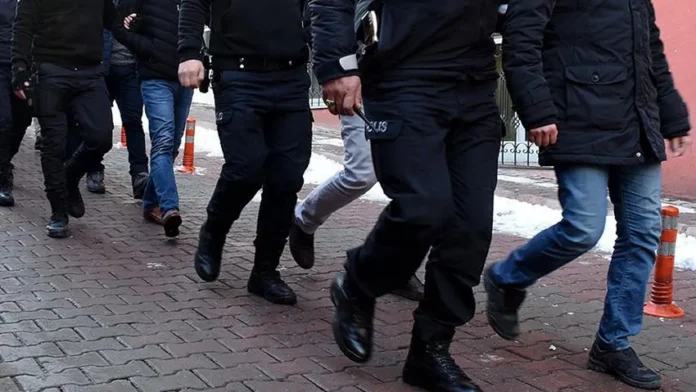Turkish authorities have detained eight Ministry of Foreign Affairs staff members and six former employees on accusations of links to the faith-based Gülen movement, the TR724 news website reported.
Police conducted operations on Tuesday across four provinces and took suspects into custody based on detention warrants issued by the Ankara Chief Public Prosecutor’s Office.
Turkish President Recep Tayyip Erdoğan has been targeting followers of the Gülen movement, inspired by the late Muslim cleric Fethullah Gülen, since corruption investigations in December 2013 implicated him as well as some members of his family and inner circle.
Dismissing the investigations as a Gülenist coup and a conspiracy against his government, Erdoğan began to target the movement’s members. He designated the movement as a terrorist organization in May 2016 and intensified the crackdown on it following the abortive putsch in July of the same year that he accused Gülen of masterminding. The movement strongly denies involvement in the coup attempt or any terrorist activity.
The suspects are accused of using the ByLock messaging app.
Turkish authorities have considered ByLock, once available in Apple’s App Store and Google Play, to be a secret tool of communication among supporters of the Gülen movement since a coup attempt on July 15, 2016, despite a lack of evidence that ByLock messages were related to the abortive putsch.
The European Court of Human Rights (ECtHR) has ruled multiple times that that the use of ByLock does not constitute a criminal offense. Turkish authorities, however, have continued to detain and prosecute people for using the application.
The suspects were also accused of maintaining contact via payphones.
The so-called “payphone investigations” are based on call records. The prosecutors allege that a member of the Gülen movement used a single payphone to call all his contacts consecutively. Based on that assumption, when an alleged member of the movement is found in call records, it is assumed that other numbers called right before or after that call also belong to people with Gülen links. The authorities do not possess the content of the calls in question. The supposition of guilt is solely based on the order of the calls made from the phone.
The detainees include six former staff members dismissed under emergency decrees.
Following the failed coup, the Turkish government declared a state of emergency and carried out a massive purge of state institutions under the pretext of an anti-coup fight. Over 130,000 public servants, including 4,156 judges and prosecutors, and more than 24,000 members of the armed forces were summarily removed from their jobs for alleged membership in or relationships with “terrorist organizations” by emergency decree-laws subject to neither judicial nor parliamentary scrutiny.
The detentions come amid a yearslong purge of employees of the foreign ministry, one of several state institutions targeted in the government’s crackdown since the coup attempt.
Concerns intensified in May 2019 after authorities detained around 100 former diplomats on allegations that they cheated on entrance exams. Peoples’ Democratic Party lawmaker and rights defender Ömer Faruk Gergerlioğlu later alleged that some of those detained were tortured, including accounts of rape with batons. The Ankara Bar Association investigated and reported that victims’ testimonies “confirm that the individuals were subjected to blows, torture and ill-treatment” and that some said they were forced to sign prepared statements. Despite those findings, prosecutors in 2020 declined to pursue charges.
According to the latest figures from the Justice Ministry, more than 126,000 people have been convicted for alleged links to the movement since 2016, with 11,085 still in prison. Legal proceedings are ongoing for over 24,000 individuals, while another 58,000 remain under active investigation nearly a decade later.
In addition to the thousands who were jailed, scores of other Gülen movement followers had to flee Turkey to avoid the government crackdown.















